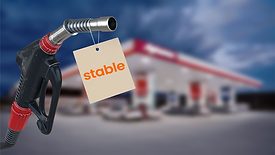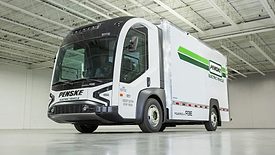Articles by Jeff Cioletti
Organizers, docking stations support needs for today’s delivery cabs
Read More
Gen Z is the most difficult age group to recruit for your fleet team
Mentorships, supportive environments key to luring Gen Z to CDL careers
February 3, 2025
New York’s congestion pricing loom over delivery fleets
What impact could first US congestion pricing have on delivery market?
January 3, 2025
2025 Trucks Report: New releases accelerate toward efficiency
Annual Truck Report looks at what’s in store from top distribution vehicle manufacturers
November 27, 2024
Refrigerated truck and trailer makers focus on greater sustainability
Thermal reduction, all-electric among solutions from truck manufacturers
October 30, 2024
When it comes to cleaner fuels, electric isn’t the only game in town
Alternative fuels offer fleet managers more options in emission-reduction goals
October 2, 2024
Electric vehicle FAQs
Get answers to some of the most frequently asked electric-vehicle questions
September 4, 2024
Diesel, gasoline prices remain relatively unchanged, year-over-year
Biodiesel remains most expensive alternatives in fuel options
August 1, 2024
Commercial vehicle leasing companies increasing EV, but diesel still dominates
Limitations with infrastructure and technology impact EV leasing status
July 3, 2024
Predicting the unpredictable
Differences between predictive, preventative fleet maintenance remain vast
June 3, 2024
Elevate your expertise in the beverage marketplace with unparalleled insights and connections.
Join thousands of beverage professionals today. Shouldn’t you know what they know?
JOIN NOW!Copyright ©2025. All Rights Reserved BNP Media.
Design, CMS, Hosting & Web Development :: ePublishing


